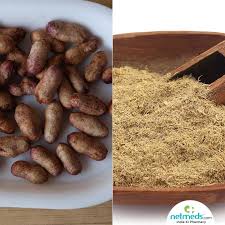
How to Start a Herbal Business Selling Jadi Buti & Ayurvedic Products
The demand for herbal and Ayurvedic products is growing rapidly as people seek natural remedies for health, skincare, and overall wellness. Starting a herbal business selling Jadi Buti (medicinal herbs) and Ayurvedic products can be a profitable and sustainable venture. Whether you want to sell online or offline, a well-planned strategy can help you establish a successful business. In this guide, we’ll explore the essential steps to start and grow your herbal business effectively.
Long Description
1. Market Research & Business Planning
📊 Identify Your Target Audience – Ayurvedic practitioners, herbal supplement users, organic health-conscious customers.
📌 Analyze Competitors – Study existing herbal brands like Patanjali, Dabur, Himalaya to understand pricing, product range, and customer preferences.
💡 Choose Your Business Model – Sell through an e-commerce website, marketplace (Amazon, Flipkart), or a physical store.
💰 Financial Planning – Estimate investment in sourcing, marketing, packaging, and certifications.
2. Legal Requirements & Certifications
✔️ Business Registration – Register your business under MSME (India) or LLC (International).
📜 Obtain Licenses – Get FSSAI license (for edible herbal products), GMP certification, and Ayush approval for Ayurvedic products.
🛡️ Trademark & Branding – Register your brand name to protect against duplicates.
3. Sourcing High-Quality Jadi Buti & Ayurvedic Products
🏡 Cultivate Your Own Herbs – If you have space, growing herbs like Ashwagandha, Bapchi seeds, Tulsi, Amla, and Brahmi can reduce costs.
📦 Find Reliable Suppliers – Partner with organic farms or wholesale Jadi Buti suppliers for bulk purchasing.
🔍 Quality Check & Certification – Ensure products are chemical-free, non-GMO, and lab-tested.
4. Branding & Packaging
🎨 Create a Unique Brand Identity – A professional logo, attractive labels, and eco-friendly packaging enhance credibility.
📦 Detailed Product Information – Clearly mention ingredients, benefits, expiry date, and certifications on packaging.
🌱 Eco-Friendly Packaging – Use biodegradable or recyclable materials to attract sustainability-focused buyers.
5. Setting Up an Online Store
🌍 Build a Website – A professional e-commerce website like Dirghaanshi increases trust and direct sales.
🛒 Choose an E-commerce Platform – Use Shopify, WooCommerce, or Magento for selling online.
📸 High-Quality Product Images – Good visuals improve customer engagement.
💳 Multiple Payment Options – Include UPI, credit cards, PayPal, and COD to increase conversions.
6. SEO & Digital Marketing Strategies
📌 Keyword Optimization – Use keywords like #BuyJadiButi, #AyurvedicProductsOnline, #OrganicHerbs in titles, product descriptions, and blogs.
📢 Social Media Marketing – Promote your products on Instagram, Facebook, and YouTube with engaging content.
✍️ Content Marketing – Write blogs about herbal remedies, benefits of Jadi Buti, and Ayurvedic wellness tips.
🎥 Influencer & Affiliate Marketing – Collaborate with Ayurveda experts and herbal bloggers to reach a wider audience.
7. Expanding Your Herbal Business
🚀 Add More Product Categories – Expand to herbal supplements, herbal teas, organic skincare, and Ayurvedic oils.
⭐ Build Customer Loyalty – Offer discounts, loyalty programs, and free samples to retain customers.
📦 Fast & Reliable Delivery – Partner with logistics services to ensure timely order fulfillment.
Conclusion
Starting a herbal business selling Jadi Buti & Ayurvedic products requires research, strategic planning, quality sourcing, and effective marketing. By focusing on branding, e-commerce, and digital marketing, you can establish a strong presence in the growing organic herbal market. Platforms like Dirghaanshi can play a key role in reaching a broader audience and building a successful Ayurvedic brand.













